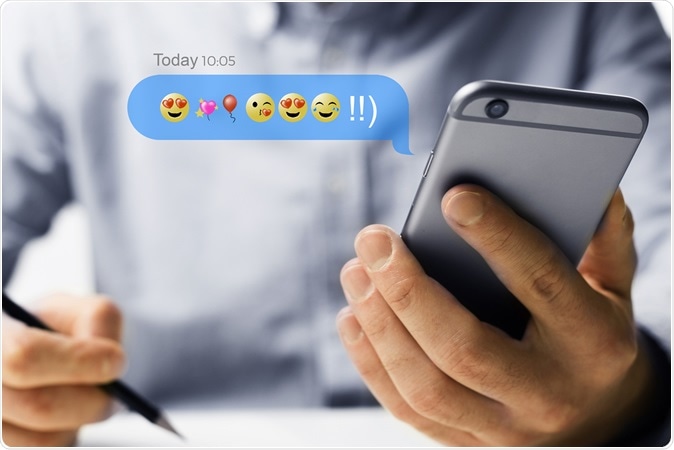Keep your smileys and other emojis to personal communication and social networking, say researchers at Ben-Gurion University of the Negev (BGU). In an office e-mail usage of emoticons can undermine sharing of information and also create a negative impression.
The new study entitled, “The Dark Side of a Smiley,” was published in the journal Social Psychological and Personality Science. It is conducted by the researchers from BGU, University of Haifa and Amsterdam University who looked at the usage of these emoticons and their effects. They conducted a battery of experiments with 549 participants from 29 different countries before they came to their conclusions. The study was funded by a grant from the Netherlands Organization for Scientific Research.

The Dark Side of a Smiley. Image Credit: pikcha / Shutterstock
Dr. Ella Glikson, a post-doctorate fellow at the BGU Department of Management, Guilford Glazer Faculty of Business and Management explained that this is the first time a study has shown that while actual smiles can increase the perception of warmth, smileys used in official mails can “decrease perceptions of competence”.
For this study, one of the experiments involved participants to read a work-related e-mail from an unknown person and then rate it according to the warmth and competence. Same message was sent out to all the participants. Some of these messages included emojis while the others did not. Results showed that while face-to-face smiles can improve the feelings of warmth, the same was absent when it was sent via a work e-mail. The results revealed that messages with emoticons were thought to be from a less competent person by most of the participants.
Next the participants were asked to respond to e-mails on formal matters. According to Dr. Glikson, if the replies were formal and without smileys, they tended to be more detailed and also contained more content related information. This means that information sharing was more detailed when it comes to mails without smileys compared to those with smileys, write the researchers.
Another experiment was designed and conducted. In this the use of a smiley was compared to a smiling or neutral photograph. When assessing the photograph, a smiling photograph was perceived as friendlier than one that was neural. But for work related emails, an inclusion of a smiley meant that the sender was perceived as less competent by the participants. Friendliness was not evaluated on the basis of the smileys.
Researchers further looked at the results in terms of gender. The interpretations were looked at when the gender of the e-mail writer was unknown. Most recipients tended to assume that the sender was a female if there was a smiley within the email. This assumption however did not affect the perception of friendliness or competence.
Glikson says that for most of us a virtual smiley is often thought to be a substitute for a real smile. But this study shows that at least for initial encounters, this assumption is not correct. When the recipient is a known one, a virtual smiley can replace a smile, else it is better to avoid smileys in a work-related email.